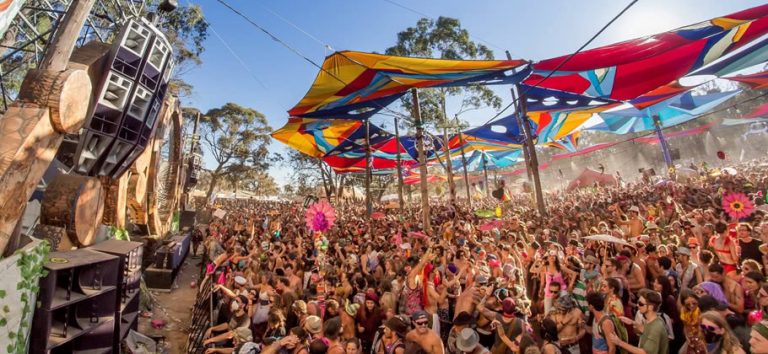Rainbow Serpent festival has been running for two decades, but after the unfortunate death of a 22-year-old attendee at the 2017 event and an increasing number of other worrying incidents in recent years, it’s been faced with increasing scrutiny from authorities and critics alike.
Now, after an especially troubled year for the long-running festival, it’s coming under fire from police who have claimed it poses “extreme risks” and are calling for its five-day length to be shortened, The Age reports.
Ballarat Police Superintendent Andrew Allen has spoken out and will be “categorically be agitating for a reduction in the length of the festival”, The Age writes.
“This elevated rate of positive tests from the event is completely unacceptable and something has to change,” he said. “More responsibility must come from the festival organisers in relation to the impact this has on the community.”
Jacob Langford’s allegedly drug-related death on January 28 was the second in the festival’s long history, but has brought back to the fore the intense criticism originally prompted by the 2012 passing of Daniel Buccianti in similar circumstances. The festival’s public image hasn’t been helped by a string of drug-related charges against its attendees, with this year seeing six arrests for drug trafficking in addition to multiple allegations of sexual assault on police officers.
Following Jacob’s death, his family spoke to The Herald Sun criticising Rainbow Serpent for its length and setting, claiming it “goes way too long without affordable food and drink,” and adding that “with that much heat and dehydration, it does not equal a safe environment.”
The most prominent concern for police appears to be the danger the festival presents to road users, however, with a quoted one in eight drivers tested for drugs while leaving the festival returning a positive result. Superintendent Allen presumably hopes that fewer days will result in fewer impaired drivers, although this idea has been refuted by organiser Tim Harvey, who compared the figures to those of an Easter Weekend.
“We know wherever in the world there are more cars, there is more chance of traffic accidents so we don’t think that statistic is isolated to the event,” he told The Age, asserting that a shorter length could, in fact, place more drivers in jeopardy.
“We strongly believe it would be counter-productive to put more cars on the road in a shorter time frame with less rested drivers,” he said. “A more realistic option, if safety is the key concern, would be to lengthen the event to include an extra day with no entertainment so our patrons can rest and revive before departing the festival site.”
Harvey and the other organisers have worked to meet criticisms and put new practices into place to combat the drug abuse and violence that are an unfortunate part of our festival landscape, having implemented their safe space policy just this year in an effort to help victims of sexual assault.
With mounting pressure once again placed on the festival – whether deservedly or not – they could be in for yet another long round of negotiations and changes if they hope to continue into their 21st year.




































